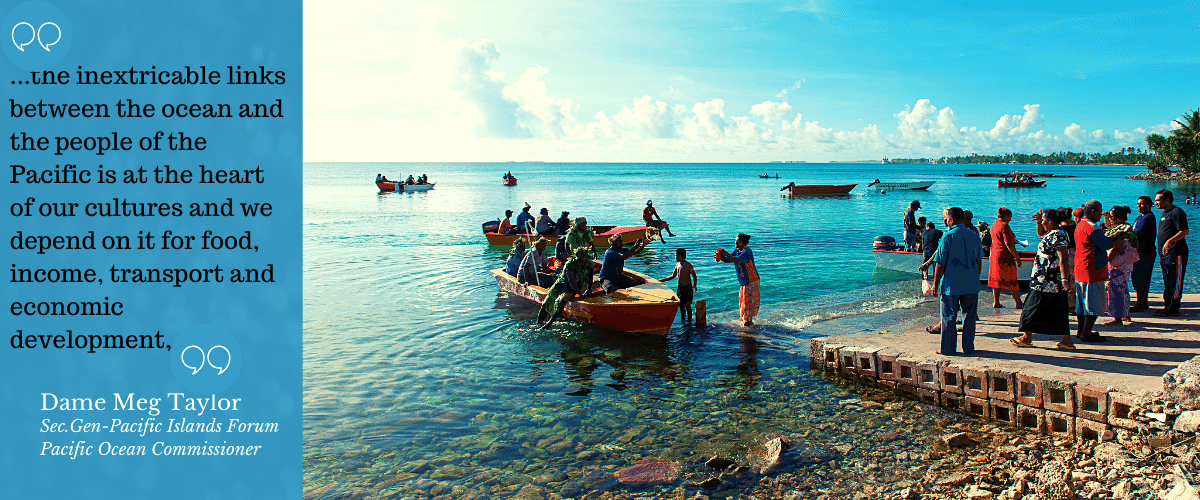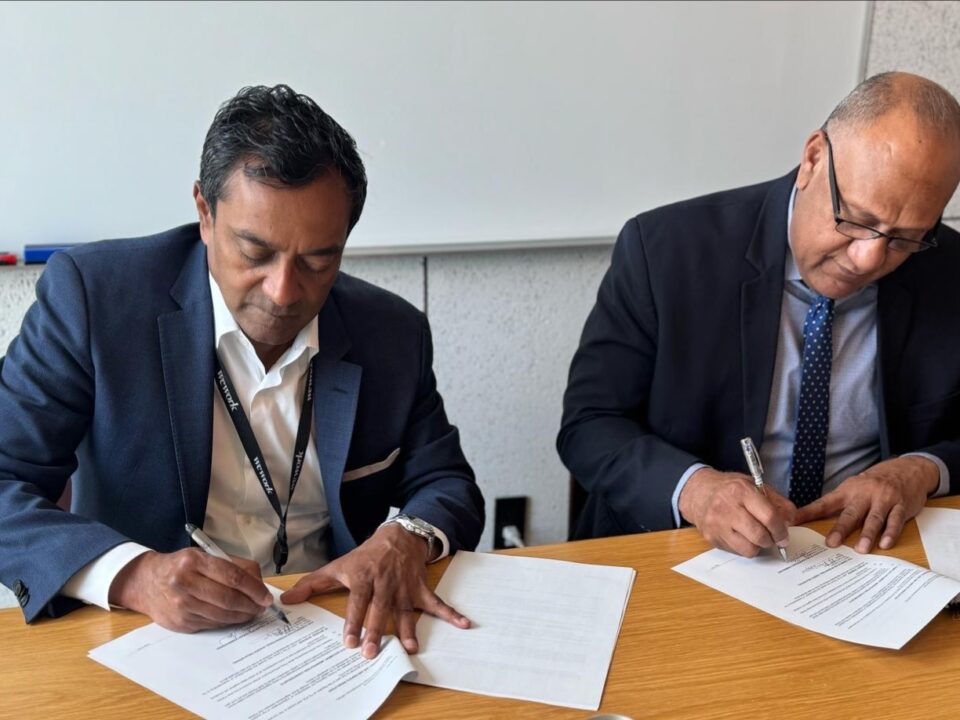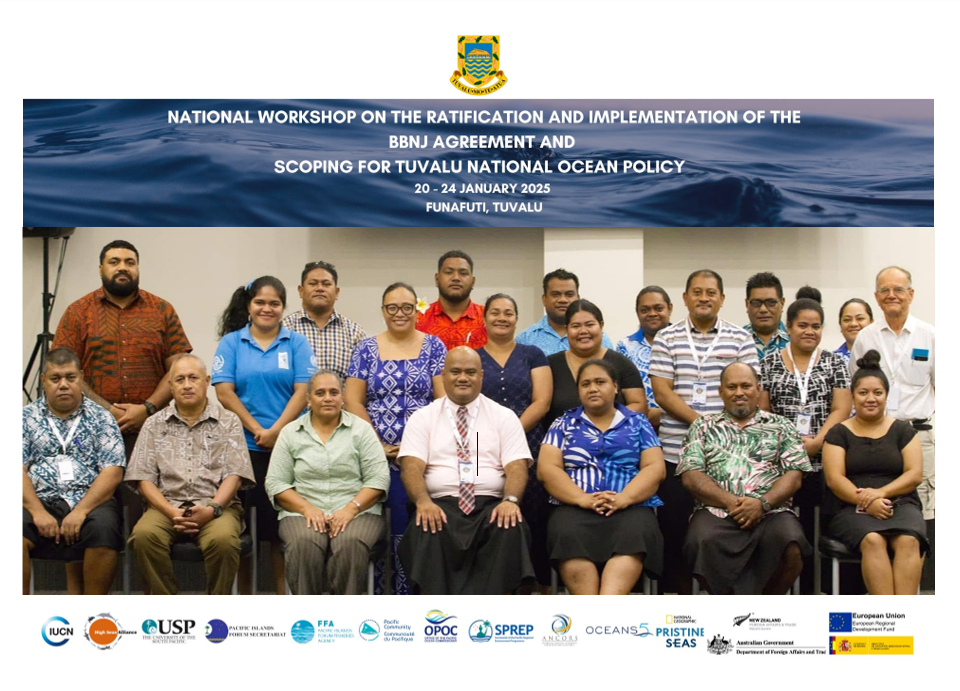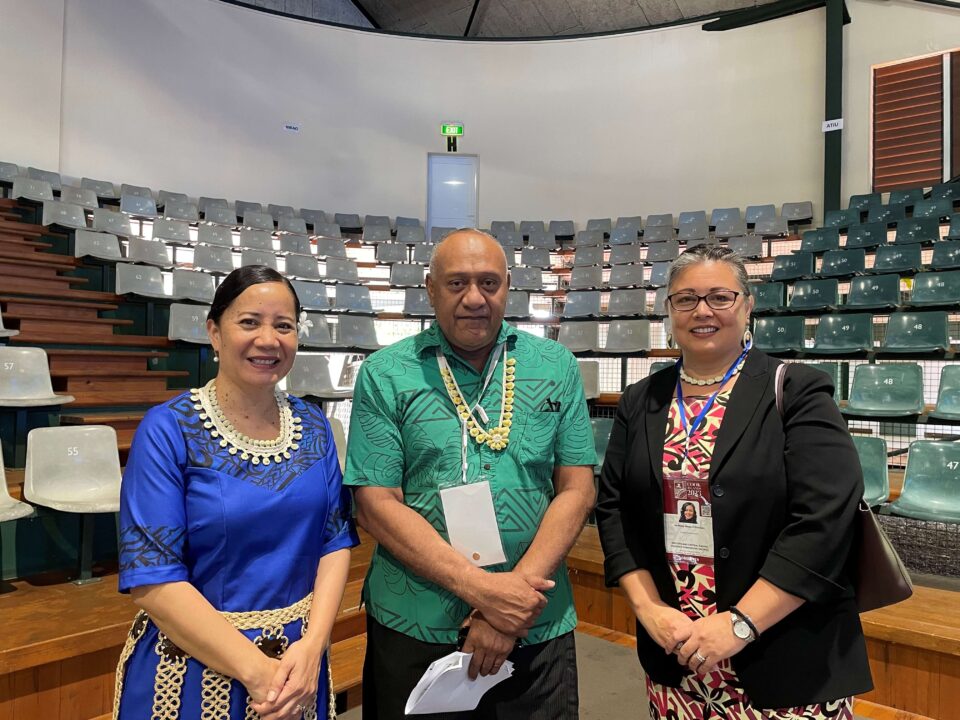
Securing the Limits of the Blue Pacific: Legal Options and Institutional Responses to the Impacts of Sea Level Rise on Maritime Zones, in the Context of International Law
Panel Discussion on Special and Inextricable Links between the Ocean and the Peoples of the Pacific
Statement by the Secretary General to the Pacific Islands Forum and Pacific Ocean Commissioner
Dame Meg Taylor, DBE
9 September 2020
The inextricable links between the ocean and the peoples of the Pacific cannot be emphasized enough. Indeed it is at the heart of our cultures and we depend on it for food, income, transport and economic development. It is the common fabric that weaves us all together as one Blue Pacific continent. Indeed since the inception of the Blue Pacific identity and narrative by the Prime Minister of Samoa in 2017, the Pacific Ocean has inspired how we conduct Pacific regionalism and in turn how we collectively advocate for our priorities. It builds from our position of strength as custodians of one of the largest ocean endowment in the world. It recognizes our collective stewardship in charting the way forward, in the management of our ocean and its resources for both the present and future generations.
As Epeli Hau’ofa puts it:
“We should not be defined by the smallness of our islands but in the greatness of our oceans. We are the sea; we are the ocean. Oceania is us”
Decades later, Climate Change and sea level rise threaten this very foundation and the stakes are high for the Pacific and it’s future. The enjoyment of sovereign rights to our resources, the effective exercise of jurisdiction to protect our resources, our ability to protect against other maritime domain threats, economic development and nation building strategies, and most significantly our status as sovereign States – are all at stake. Addressing this critical threat requires a determined, yet pragmatic approach and it requires our collective action.
The year 2020 was supposedly an important year for the ocean globally. With the anticipated global events that have now been deferred to later this year and to 2021 due to the impacts of COVID 19. So in this sense, the convening of this conference is not only timely, but an opportune moment for the region to show case its commitment to maintaining the momentum on oceans and climate, as we look ahead to the upcoming key oceans events, currently on the global agenda.
The Leaders’ tasking to collectively commit to developing international law, as supported through the call under the Kainaki II Declaration, has set the tone for our deliberations in the coming days and we must draw inspiration from this.
The UN Law of the Sea Convention on the sets out the legal framework which governs all activities and transactions in the ocean space. The Convention as we know, divides ocean space into a number of different maritime zones, and accords States, certain rights, privileges and jurisdictions in these different zones. The Convention provides the processes for which States could delimit their maritime boundaries and delineate the outer limits of their maritime zones. Leaders have reaffirmed their commitment to securing the Blue Pacific Continent, and have urged Members to conclude the work on the remaining maritime boundaries and outer limits, in a timely manner.
The challenges to these efforts is however, manifold. The first is the challenge brought about by the sea level rise as an impact of climate change, in the context of maritime zones. Secondly, the very fact that the Convention itself does not provide a clear way forward exacerbates the challenge.
This week, you will focus on approaches and consider options, and how we as a collective, could pursue the objective of securing our interests in maritime zones into perpetuity, as tasked by Leaders . You have a very important task in the next few days, to lay the foundation of the work that is necessary to help secure the limits of the Blue Pacific, and our individual interests in the maritime zones we have delimited under the Convention. We all look forward to the outcome of this work.
In closing, I would like to leave you with a Pacific aphorism from the region, particularly for participants from around the world joining hands with us in this endeavor.
In the Pacific, the vaka or drua is our traditional voyaging canoe. And in the vaka, is our ancestors, we have mothers, fathers, we have the youth and children. So, in our vaka, we have our past, present and future generations. The journey within our Blue Pacific Ocean is often vast, with miles and miles of ocean before we reach our destination. But reaching that destination safely is not always easy, as it will require collective wisdom and skilled stewardship. One that takes into account our traditional knowledge and places the interest of current and future generations at the forefront.
This work is therefore one more ‘voyage’ or it could be our greatest voyage, as our forefathers have undertaken many generations ago. Although in this case the challenges are not about whether the ocean currents and easterly winds are right for a voyage, or whether the stars are properly aligned to guide us to our destination. This journey is more about telling our story, about our inextricable links to the oceans, to influence the rules that govern our interaction in this shared space
Indeed, it is a fair question to ask, what does the phrase ‘progressive’ development of international law really mean? Can the object of the so-called progressive development of international law be to simply as I said earlier maintain ‘status quo,’ or does the term ‘progressive’ have much more deliberate and nuanced meaning? I urge all of us to ponder over these questions in the next few days as we unpack these issues. Because the answers will be very very important for us here in the Pacific.
Again I wish you all the very best in your deliberations. This effort will no doubt require collective commitment from us all to securing The Blue Pacific Continent for now, and for our future generations.
I thank you.



